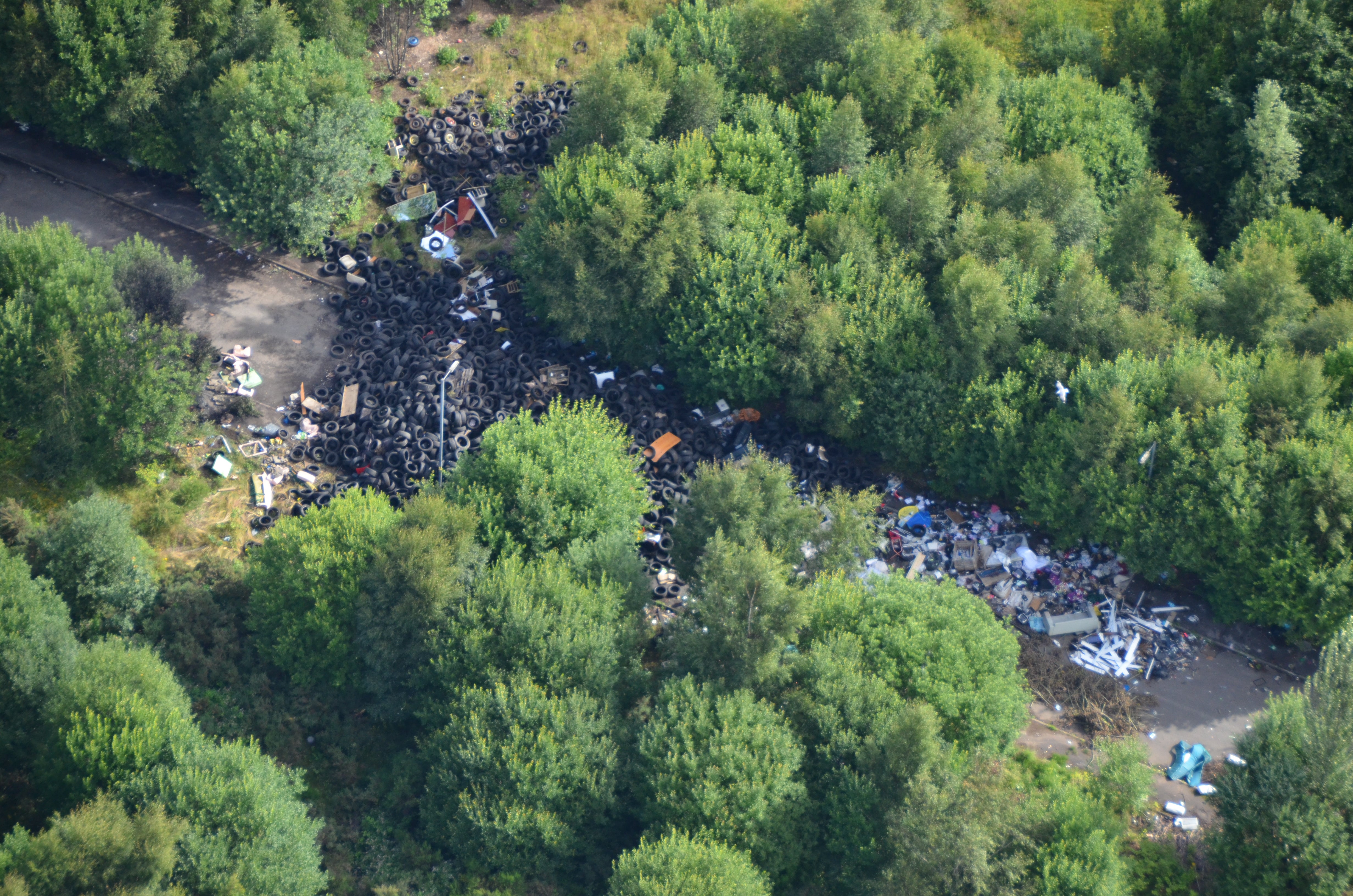Fly-tipper who dumped 51 tonnes of tyres jailed
Police found Declan Clarke hiding under a bed when they searched his home.

A fly-tipper who dumped 51 tonnes of tyres on waste ground has been jailed for 11 months.
Declan Clarke, 30, from Dumbarton, collected the tyres from places such as garages for a fee and then dumped them in car parks and empty land around Glasgow.
Prosecutors said the vast majority of the tyres were dumped at Dalsetter Crescent in Drumchapel and were consumed in a fire on July 24 2020.
It caused so much smoke it disrupted flights at Glasgow Airport.
Two days later, the remnants were cleared by Glasgow City Council workers.
They found the debris consisted of 51 tonnes of tyres and 17 tonnes of household waste.
Declan Clarke’s deliberate and criminal action showed a lack of consideration for the environment
Around 500 tyres were dumped at Gartloch Farm, near Gartcosh to the east of Glasgow, between October 8 and 22, 2020 while more tyres were deposited there on November 13 the same year.
Clarke pleaded guilty to depositing controlled waste, namely used tyres, on or in land otherwise than in accordance with a waste management licence, in breach of the Environmental Protection Act 1990, at a previous court hearing in April.
He was sentenced to 11 months behind bars when he appeared at Glasgow Sheriff Court for sentencing on Wednesday, the Crown Office said.
Sergeant Nigel McDonald of Police Scotland said afterwards Clarke was “an opportunistic criminal using his illegitimate business to collect tonnes of rubbish for a fee before just dumping them across the city”.
He added: “Not only did this end up costing significant sums for the authorities to clear up, but there has been serious and long-lasting environmental damage to a number of areas where tyres or waste were heaped and set on fire.”
Sgt McDonald said while it was “highly unusual for fly-tipping cases like this to result in a custodial sentence” this showed “the seriousness of Clarke’s repeated offences”
Speaking after Clarke was sentenced, Fiona Caldwell, procurator fiscal for wildlife and environmental crime, said: “Fly-tipping causes the public real and legitimate concern.
“It is criminal behaviour which creates an eyesore and is costly to clear up and one that the local council must often carry.
“Declan Clarke’s deliberate and criminal action showed a lack of consideration for the environment and undermines legitimate waste management companies.
“There is no excuse for illegal dumping of waste and those who choose to engage in it will be brought to account for their actions.”
Prosecutors said that between June and August 2020, a large number of tyres were fly-tipped in the Drumchapel area.
As well as those dumped at Dalsetter Crescent, tyres were left at Drummore Road, Glenkirk Drive and at the Donald Dewar Centre.
Gartloch Farm has frequently been used as a dumping ground by fly-tippers and as a result wildlife cameras have been installed on the land.
These cameras captured Clarke, using a number of different hire vans, dumping tyres.
On November 20 2020 police executed a search warrant at Clarke’s home and found him hiding under a bed.
During the search a key for another hire van was discovered and the vehicle, parked outside his flat, was found to be full of tyres.
A mobile phone was also seized which was found to contain messages between Clarke and proprietors of vehicle garages and tyre fitters in which the collection of tyres was discussed.
From the messages it appeared that Clarke was charging £1-£2 per tyre and in one message dated November 18 2020 he stated: “It’s getting a bit hot to get rid of them.”
Clarke was not connected to the fire.
Prosecutors said the cost of cleaning up Dalsetter Crescent was £7,245.16, while the estimated cost of cleaning up Gartloch Farm is £120,000 and a further £2,800 to dispose of the remaining tyres.
Stephen Egan, Glasgow City Council’s head of parks and streetscene, welcomed Clarke being jailed for his “shocking example of fly-tipping”
Mr Egan said the council “had to divert significant resources to clear up the waste dumped by this individual and the subsequent fire was clearly dangerous and detrimental to the local environment”.
